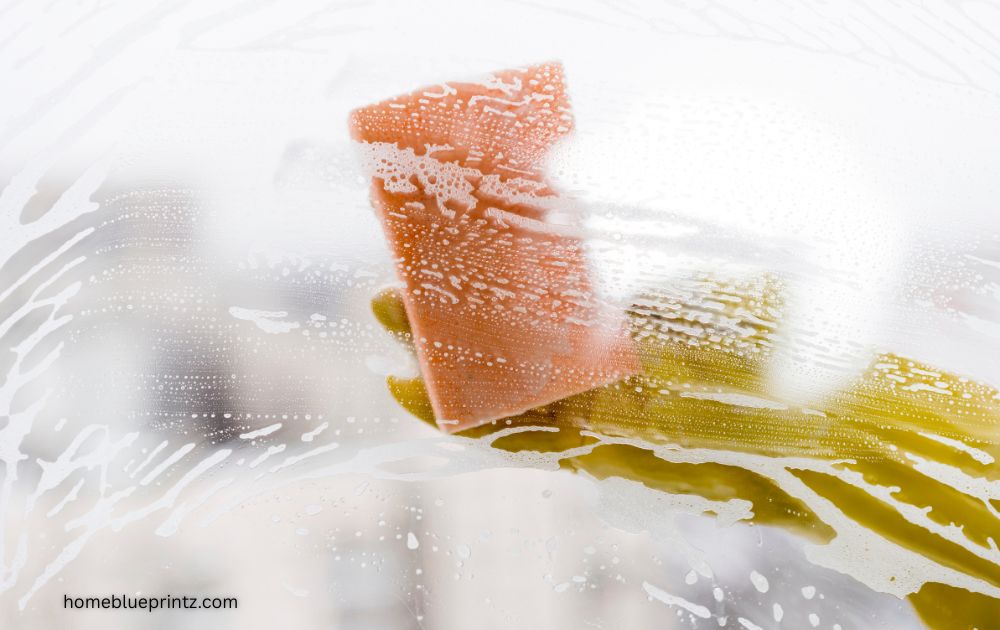Foam Glass Cleaner: The Ultimate Guide to Sparkling Surfaces
Have you ever cleaned your windows only to find streaks staring back at you? That’s where foam glass cleaner comes in a revolutionary way to achieve spotless, crystal-clear glass surfaces without the hassle. Whether it’s your car windshield, bathroom mirror, or office glass partitions, foam glass cleaners deliver a quick, efficient, and streak-free shine.
Understanding Foam Glass Cleaner
Foam glass cleaner is a specially formulated product designed to clean glass surfaces with ease and precision. Unlike traditional liquid cleaners, its foamy texture allows it to cling to surfaces longer, effectively lifting dirt, grease, and grime without dripping. This makes cleaning faster, more efficient, and less messy. The result is a sparkling, streak-free finish that leaves your glass surfaces looking brand new.
Benefits of Using Foam Glass Cleaner
Using a foam glass cleaner offers several practical benefits that make cleaning effortless and effective. It not only ensures spotless results but also saves time and effort during cleaning tasks.
- Provides a streak-free, crystal-clear shine.
- Dries quickly without leaving residue.
- Works on multiple surfaces, from mirrors to car windows.
How to Use Foam Glass Cleaner Properly
Using foam glass cleaner the right way ensures a spotless, streak-free finish every time. Start by shaking the can well, then spray a light, even layer of foam onto the glass surface. Allow it to sit for a few seconds so it can lift dirt and grime effectively. Wipe the foam away using a clean microfiber cloth in circular motions, and buff the surface gently for a crystal-clear shine. Avoid using too much product or cleaning under direct sunlight to prevent streaking.
Best Places to Use Foam Glass Cleaner
Foam glass cleaner is versatile and can be used in many areas around your home, car, or office to achieve a spotless shine. It works effectively on smooth surfaces, leaving them crystal clear and streak-free.
- Home windows and mirrors – Keeps your interiors bright and spotless.
- Car windshields and windows – Improves visibility with a streak-free finish.
- Shower glass and bathroom fixtures – Removes soap scum and water stains easily.
- Office glass and screens – Maintains a professional, polished appeara
Eco-Friendly and Safe Usage
Foam glass cleaners today are designed with both safety and sustainability in mind. Many are formulated without harsh chemicals, making them safer for your home, family, and the environment.
- Choose ammonia-free and biodegradable options.
- Keep products out of children’s and pets’ reach.
- Recycle empty cans responsibly according to local guidelines.
Choosing the Right Foam Glass Cleaner
Choosing the right foam glass cleaner can make all the difference in achieving a perfect, streak-free shine. Look for a product that is ammonia-free, safe for multiple surfaces, and quick-drying. Investing in a trusted brand ensures better results and long-term value.
- Opt for ammonia-free and streak-free formulas.
- Choose cleaners safe for tinted or coated glass.
- Prefer reliable brands for consistent performance.
DIY Foam Glass Cleaner Recipe
Creating your own DIY foam glass cleaner is simple, cost-effective, and eco-friendly. All you need is distilled water, rubbing alcohol, and a bit of cornstarch to mimic the clinging effect of foam. Mix the ingredients in a spray bottle, shake well, and you’ve got a homemade cleaner that leaves your glass surfaces sparkling. For a pleasant touch, add a few drops of your favorite essential oil. This natural recipe is gentle, streak-free, and perfect for everyday cleaning.
Professional Tips for a Crystal-Clear Finish
For a truly crystal-clear finish, use the right tools and techniques to make your glass shine effortlessly. Always clean with a microfiber cloth and move in gentle circular motions to prevent streaks. Don’t forget the corners and edges, as dust often hides there.
- Use a clean microfiber cloth instead of paper towels.
- Wipe in circular motions for an even shine.
- Pay attention to corners and edges for a flawless finish.
Common Myths About Glass Cleaning
There are a few common myths about glass cleaning that often lead to frustration and wasted effort. Many people believe that using more foam means better cleaning, but that’s not true a light layer is usually enough. Another misconception is that foam glass cleaners can damage tinted or coated glass, when in reality, ammonia-free formulas are completely safe to use.
Troubleshooting Cleaning Issues
Even the best cleaners can leave streaks or spots if not used correctly. Common issues usually come down to using too much product, a dirty cloth, or not letting the foam sit long enough. Here’s how to fix them:
- Streaks: Use less cleaner and wipe with a clean microfiber cloth.
- Hard Water Stains: Let the foam sit longer before wiping.
- Grease or Fingerprints: Apply again and allow a few extra seconds for the foam to lift residue.
Storage and Maintenance Tips
Proper storage of your foam glass cleaner ensures it stays effective and safe to use. Keep it in a cool, dry place away from direct sunlight or extreme temperatures to maintain pressure and formula quality.
- Store upright to prevent leaks.
- Avoid freezing conditions.
- Check the can for damage or expiry before use.
Comparing Foam Glass Cleaners with Alternatives
When comparing foam glass cleaners with other cleaning alternatives, it becomes clear that foam-based options often deliver better coverage and less streaking. Their thick consistency allows for more control, reducing drips and ensuring a spotless shine.
- Foam cleaners cling better to vertical surfaces.
- They minimize streaks and residue.
- Require less wiping and effort.
- Ideal for mirrors, windows, and glass tables.
Conclusion
If you’re tired of streaks, drips, and endless wiping, foam glass cleaner is your new best friend. It’s efficient, affordable, and leaves every surface gleaming. Whether you use it at home or on the go, this innovative cleaner makes sparkling glass easier than ever.
FAQs about foam glass cleaner
- Can I use foam glass cleaner on tinted windows?
Yes, as long as it’s ammonia-free and labeled safe for tint. - How often should I clean my glass surfaces?
Once a week is ideal to prevent dust and fingerprints from building up. - Is foam glass cleaner safe for my car dashboard?
It’s best suited for glass, but some formulas are safe for non-glossy surfaces. - Can foam glass cleaner remove hard water stains?
Yes, with repeated use and proper dwell time. - What’s the best way to avoid streaks when cleaning?
Use a clean microfiber cloth and wipe in circular motions under indirect light.
Share this content:














Post Comment